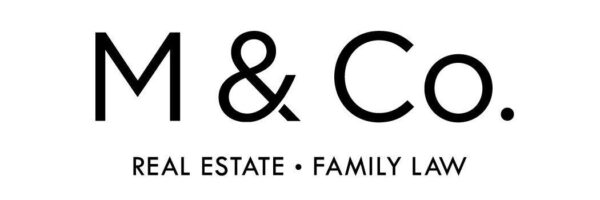Did you know that 33% of Canadian Homeowners needed help from their parents to purchase a home?
Manulife Bank published its 2021 Spring Debt Survey with the results showing that many Canadians feel homeownership is out of reach. This is especially true for Millennials and first-time home buyers. Where are they turning? To the Bank of Mom and Dad.
The Bank of Mom and Dad is a relatively new “institution” and is widely known for its very lenient lending policies and minimal repayment requirements. Parents gifting or lending money to their child, allows them to enter the real estate market that would be otherwise out of reach. The parents get the benefit of supporting their child with their home purchase. It’s a win-win situation.
What pitfalls could Mom and Dad fall into if they don’t protect their investment?
Most people don’t know that parents simply cutting a cheque towards the child’s home purchase is a very risky move. There are more financially sound ways to meet the goal of helping your child but still protecting your gift of the investment.
First, it matters legally how the funds are labelled. Is it a loan? A real estate lawyer may set up the loan as a second mortgage, payable after the bank mortgage. Parents will have a valid claim to the property. However, many mainstream lenders will not permit a second mortgage. Repayment terms may also affect the cash flow and debt ratio of the child.
What if it is labelled as a gift? This is an even riskier move. If the child moves into the home with a partner or, down the road, moves a partner into the house or marries, it puts this money at risk if the couple breaks up.
How may the law treat this situation?
Let’s say the house is purchased for $1.2M, and the bank mortgage is $700,000. The parents contributed $400,000 towards the down payment, and the couple contributed $50,000 each.
The home sells for $1.3M on break up, the bank is paid, and the balance is $600,000.
This $600,000 is shared between the couple, and each receives 50%, which is $300,000.
One partner invested $50,000 and received $300,000, whereas the other partner/their family invested $450,000, and the parents are at a loss of $150,000.
Things get even more complicated after marriage and once the property is considered a Matrimonial Home.
How do parents solve this problem?
It’s simple – a Cohabitation Agreement or a “Pre-Nup,” which we call a Marriage Contract.
A Cohabitation Agreement or Marriage Contract allows the parties to outline the terms of the Bank of Mom and Dad payment and how it is dealt with on break up.
In our example, with a properly drafted Cohabitation Agreement or Marriage Contract, the $400,000 investment of the parents is returned to them on sale of the home, and the couple shares the balance, each receiving $100,000. It is undoubtedly a more fair result.
What’s the most challenging part of the Cohabitation Agreement or Marriage Contract? It’s the bad reputation these agreements have. People feel uncomfortable about asking their partner to sign. It’s “not romantic”. They don’t want to think about a break up when the relationship is going well, and they don’t want to disrupt this happy time in their life – purchasing their dream home.
We often tell clients to have this conversation as part of their overall financial planning conversation. You are planning to share your future together. As part of this conversation you need to talk about all of the “what ifs,” including break up or death. Some couples make a night of these conversations, including sharing a bottle of wine or even dinner out. There’s nothing more romantic than planning your future with your significant other.
We often refer to these agreements as “relationship insurance.” You have life insurance, car insurance and home insurance, and now you have “relationship insurance.” For a relatively small cost, you protect 100% of your parents’ investment? It just makes sense.
With divorce rates being in the 50% range and higher, it simply doesn’t make financial sense not to protect the Bank of Mom and Dad. If you were offered an investment with a 50% chance you would lose the investment or a portion of the investment, would you invest in it? Absolutely not.
If you are considering investing in your child’s home purchase or your parents are lending you money, check out Love & Money.ca for more information.



